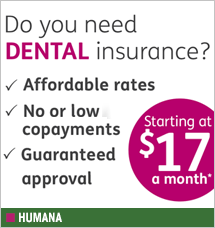A Healthy Age
Five Ways to Sabotage Your Medical Appointment – Or How I Learned to Live

 In 1963, I experienced several childhood diseases. Kindly old Doc Huffman made house calls, teaching my mom about mumps, chicken pox, and measles. Doc Huffman was the only show in town. After office hours, he visited sick children and homebound adults. The town’s hearse was also the ambulance; Doc Huffman often accompanied it to accidents.
In 1963, I experienced several childhood diseases. Kindly old Doc Huffman made house calls, teaching my mom about mumps, chicken pox, and measles. Doc Huffman was the only show in town. After office hours, he visited sick children and homebound adults. The town’s hearse was also the ambulance; Doc Huffman often accompanied it to accidents.
Doc Huffman is a memory. Seniors wax and wane for health care with familiar long-term, family doctors, channeling their own Marcus Welby, M.D. Today, our insurance carriers may dictate provider changes. We long for the good old days. From the physicians and advanced nurse practitioners to therapists and nurses and certified nursing assistants, billers and coders — it takes a village to treat us now.
How do we squeeze the most from our visits?
Here are five ways NOT to have a successful visit.
- Forget your medicines including the over-the-counter stuff. Better still, bring your meds in the seven-day blue plastic case. There’s a good reason providers need to understand what you are taking every time you visit. Our bodies change as we age; we react differently under different circumstances. We may add St. John’s Wart and not think of mentioning it. Is there a risk with our other meds?
The amount of prescription and over-the-counter meds available to us in 2016 far exceeds what Doc Huffman imagined half a century ago. No one can remember all pills, potions, and products. If you do not believe me, do as I did. Drop all your pills on the floor from the pill minder, as I did with my mother’s.- Quote Dr. Oz or Oprah to your medical professional, or cite a Larry King infomercial. I am not saying that information from TV clinicians or celebrities is of no value. That would be stupid; we all have the capacity to learn and share.
However, does this out-of-context tidbit supersede your doctor’s medical knowledge, a practitioner who has your charts and knows you? Leave the Oprah wisdom at your kaffeeklatsch.- Stir up a fuss if you get a nurse practitioner or physician assistant. Mid-level providers are here to stay. The Centers for Disease Control and Prevention reports in 2012, 53.3% of office-based primary care physicians worked with physician assistants or nurse practitioners. Frankly, I see a nurse practitioner because nurses are great listeners, and I get more time to share my aches and pains.
- Quote all the gruesome side effects of a drug from the package insert to your practitioner, even if you haven’t had any of them. No one wants to take a drug whose side effects outweigh the benefits. But, it’s complicated, and your physician can help you weigh the risks and benefits.
A package insert reports on what side effects patients experienced during clinical trials. The trial might be for a cholesterol-reduction drug. Perhaps one person in the study had excessive itching. Will you have excessive itching?
Your provider puts your needs against what he or she knows about you. Your provider has the experience of prescribing medications to others. Every package insert has a section called Information for Patients, which may be helpful.- Complain about the cost of health care, and don’t make your $30 co-pay. Make the office bill you, pay a biller, postage, and possibly a collection agency. You are right. Medical care is expensive. Your medical provider is aware of that. In 1963, kindly old Doc Huffman charged five dollars for the home visit.
The cost of a new house in 1963 was $12,500. Freelancer Richard Kepler Brunner wrote about medical expenses for his family of four in 1963 in MCall.
1963, Husband Wife, Two Children
Jan 1, Lab Test, $5
Jan. 16, Obstetrician, $25
June 15, Surgeon Office Visit, $10
July 3, Hospital Maternity Ward, 7 days, $54.33
July 9, Doctor fees hospital care, $93
His notes reflected the family spent $456.55 for 24 medical expenses that year.
I am offering food for thought. Health care costs are too high, particularly in our country, and I don’t debate that fact. However, your physician's office is not the place to lobby for increased funding for Medicare or decreasing medication costs. Write your congressional representative or support one of the many groups dedicated to senior health advocacy.
The goal of a physician visit is increased understanding of your current health. You are your number one advocate. Make the most of your time with your provider. Ninety-nine percent of medical professionals went into medicine because of wanting to help others. Help them help you.
Find my books and columns at www.amyabbottwrites.com.




























































